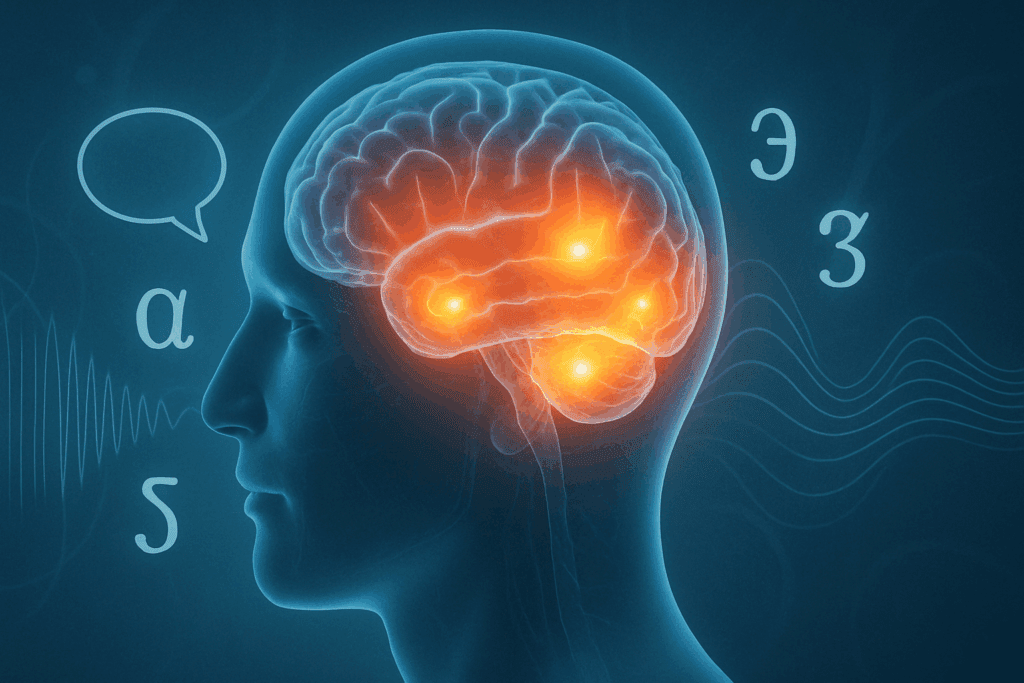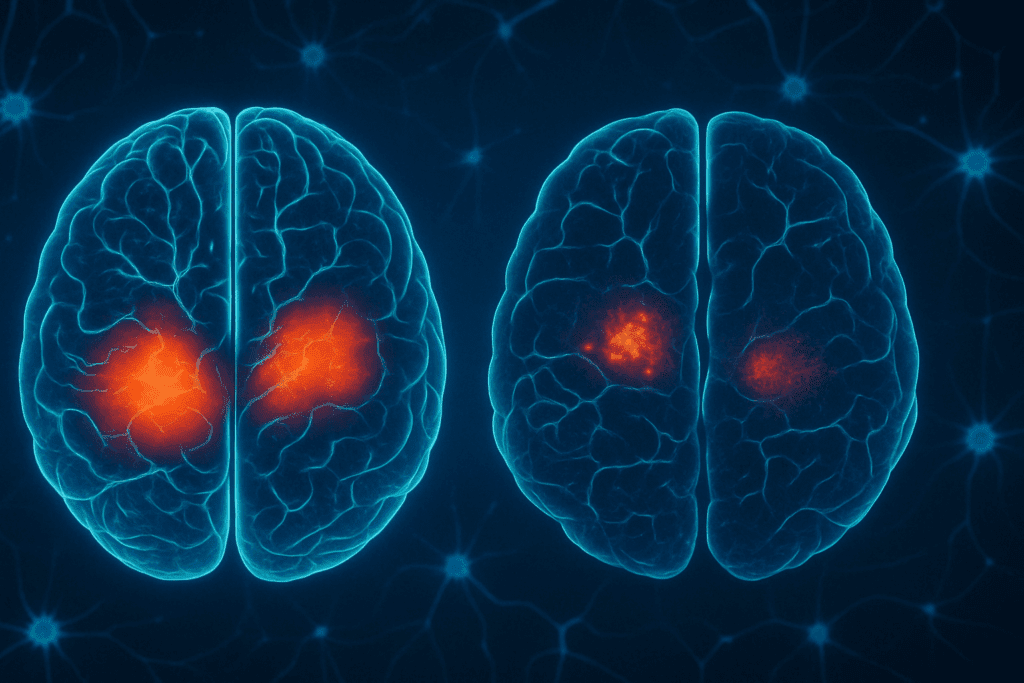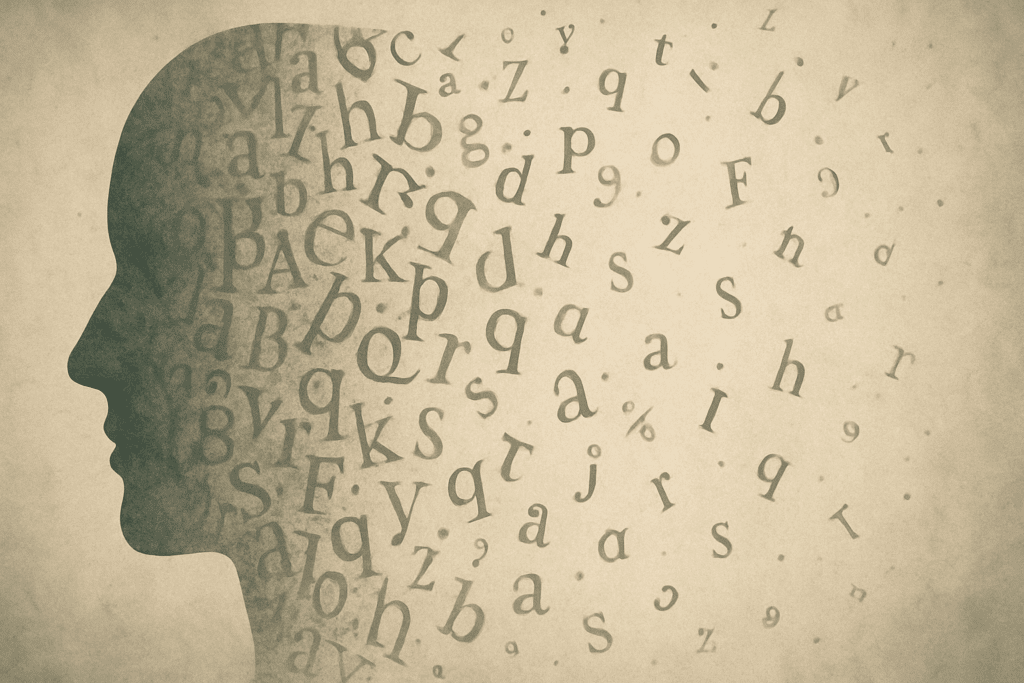In recent years, growing attention has been paid to the subtle linguistic clues that may precede the onset of dementia. Among these, word-finding difficulties and mispronunciations have emerged as early warning signs that are now being closely studied by neurologists and cognitive scientists alike. This has given rise to public interest in specific phrases such as “what 3 words are mispronounced before dementia” and “what are the 5 words you mispronounce before dementia,” which hint at a broader concern: is a sudden or increasing tendency to mispronounce common words a red flag for underlying neurological decline? This article explores that question through the lens of current medical research, cognitive linguistics, and clinical insight, offering readers a comprehensive look at whether mispronouncing words could indeed be a sign of dementia—and what to watch for.
You may also like: How to Prevent Dementia and Alzheimer’s Disease Naturally: Expert-Backed Strategies to Reduce Your Risk Through Lifestyle and Diet

Understanding the Role of Language in Cognitive Health
Language is deeply embedded in human cognition. Our ability to speak, read, and understand language relies on a finely tuned network of brain regions that work in concert, particularly the temporal and frontal lobes. These areas manage vocabulary, syntax, articulation, and the intricate dance of motor coordination required for verbal expression. Because of this interdependence, even subtle disruptions in language can serve as early indicators of neurological changes. Researchers have long recognized that language impairment can be one of the earliest signs of cognitive decline, especially in certain forms of dementia such as Alzheimer’s disease and frontotemporal dementia.
The concept behind the curiosity surrounding “5 words you pronounce wrong before dementia” stems from anecdotal and clinical observations that some individuals begin to struggle with articulating specific, otherwise familiar terms. This doesn’t mean that every instance of mispronunciation signals dementia, but persistent or progressive difficulties may warrant further investigation. For example, consistently stumbling over the same words or substituting similar-sounding but incorrect words might reflect challenges in lexical retrieval—a hallmark of early cognitive deterioration.

What Types of Word Errors Are Considered Concerning?
While everyone mispronounces words from time to time—especially complex or unfamiliar ones—there are particular patterns of error that stand out in cases of early dementia. These include phonemic paraphasias, where a person substitutes, omits, or rearranges sounds in a word (e.g., saying “tephelone” instead of “telephone”); semantic paraphasias, where the wrong but related word is used (e.g., saying “chair” instead of “table”); and neologisms, in which entirely made-up words are uttered. These types of mistakes suggest deeper issues with the brain’s language centers, beyond occasional forgetfulness or tongue-tied moments.
In clinical practice, when a patient or their loved ones begin to wonder whether “is mispronouncing words a sign of dementia,” it’s usually in the context of these more persistent and systemic errors. Language screenings and neuropsychological assessments often include tests that can help differentiate between benign speech quirks and more serious linguistic degradation. Clinicians pay attention not only to how often someone mispronounces words but also to the context in which it happens, the complexity of the words involved, and whether the person is aware of the mistake.

The Connection Between Verbal Errors and Early Cognitive Decline
One of the reasons verbal errors are so significant in dementia diagnostics is because of how language is processed in the brain. The left hemisphere, particularly Broca’s area and Wernicke’s area, is responsible for language production and comprehension. Damage or degeneration in these regions can severely affect a person’s ability to articulate thoughts, retrieve words, or even understand spoken language. In Alzheimer’s disease, for example, patients often experience anomia—the inability to recall the names of everyday objects—which may be perceived by others as simply mispronouncing or hesitating over common terms.
This is where the viral curiosity about “what 3 words are mispronounced before dementia” intersects with legitimate neurological concern. While there is no universal list of such words, the concept reflects a valid fear: that early cognitive decline might manifest as subtle, recurring linguistic slips. Studies have shown that individuals in the early stages of dementia may struggle with high-frequency, low-ambiguity words—terms they use daily and would normally never forget. This is not just a matter of forgetfulness, but a sign that the brain’s language networks are beginning to deteriorate.
Is There a Scientific Basis for the “5 Words You Pronounce Wrong Before Dementia” Trend?
While no peer-reviewed study has officially cataloged five specific words that everyone mispronounces before a dementia diagnosis, the concept has gained traction as a simplified representation of a deeper truth. The idea likely stems from observational patterns in speech-language pathology, where clinicians note that patients often trip over the same types of words—those requiring precise articulation, carrying multiple syllables, or involving subtle phonetic contrasts. Words like “statistician,” “cinnamon,” and “specific” are commonly mispronounced even by healthy adults, but if a person suddenly begins mispronouncing such words consistently, it may be worth exploring further.
It’s important to view the phrase “what are the 5 words you mispronounce before dementia” as a metaphor rather than a clinical checklist. Its popularity underscores the need for public education about the early signs of cognitive decline. More importantly, it opens the door to discussions that encourage people to monitor changes in speech patterns and to seek professional evaluation if those changes become more frequent or pronounced.

Linguistic Markers That May Precede Cognitive Decline
Beyond simple mispronunciations, there are other linguistic changes that may point toward the onset of dementia. These include a noticeable reduction in vocabulary, increased use of filler words, trouble following or maintaining the thread of conversation, and difficulty naming familiar objects. These signs may appear gradually and can often be dismissed as normal aging unless observed closely over time. When combined with other early dementia indicators—such as memory lapses, disorientation, or impaired judgment—these language changes become more clinically significant.
The concern about “5 words you pronounce wrong before dementia” may be a gateway into understanding broader linguistic decline. Language impairment is often subtle in the early stages, manifesting as hesitation, circumlocution (talking around a word), or the use of vague references like “thingy” or “that stuff.” These habits might initially seem trivial, but over time, they may signal a brain struggling to access the neural pathways that support fluent communication.

The Role of Education and Cognitive Reserve
Interestingly, the onset and severity of language-related symptoms can vary depending on a person’s educational background and cognitive reserve. Individuals with higher levels of education or intellectually demanding careers often experience a slower progression of linguistic symptoms due to greater neural adaptability. However, this can also delay diagnosis, as well-compensated deficits may remain hidden for longer. When such individuals begin to show signs—such as persistent mispronunciations or trouble with word recall—these changes may be particularly telling.
In clinical terms, this means that mispronouncing words isn’t inherently indicative of dementia but becomes more concerning when it represents a departure from a person’s baseline linguistic performance. Context matters enormously. If someone who has always spoken fluently and articulately begins stumbling over everyday terms, the question “is mispronouncing words a sign of dementia” becomes more pressing and warrants clinical assessment.
When to Seek Professional Evaluation
Determining when to seek help is a delicate matter, especially given the fear and stigma surrounding cognitive decline. Occasional word slips or difficulty pronouncing complex terms is not, in isolation, a cause for alarm. However, when these issues become frequent, affect communication, or are accompanied by other cognitive or behavioral changes, it is advisable to consult a healthcare professional. A neurologist or speech-language pathologist can conduct comprehensive evaluations to determine whether the symptoms fall within the spectrum of normal aging or suggest an underlying neurodegenerative condition.
A growing number of dementia screenings now incorporate language assessments as part of a broader cognitive evaluation. These assessments may involve tasks such as naming objects, repeating sentences, understanding verbal instructions, and reading aloud. Observing the frequency and types of mispronunciations during these exercises helps professionals determine whether they align with patterns typical of early dementia.

Practical Steps for Monitoring and Supporting Language Health
For those concerned about their own language abilities or those of a loved one, there are practical strategies to help monitor and support cognitive and linguistic health. Journaling verbal mistakes, noting their frequency and context, can provide valuable data for future assessments. Engaging in language-rich activities such as reading, word games, and conversation with others can also support brain health by keeping neural pathways active.
If the fear surrounding “what 3 words are mispronounced before dementia” or “5 words you pronounce wrong before dementia” becomes overwhelming, it’s important to balance vigilance with perspective. While language issues should not be ignored, they are best understood within the broader landscape of cognitive functioning. Tracking patterns over time, staying engaged in mentally stimulating activities, and seeking timely evaluations are key steps toward proactive cognitive care.
Debunking Misconceptions and Reducing Stigma
Unfortunately, discussions around dementia often become entangled with fear-driven myths and misinformation. The notion that mispronouncing a handful of words automatically means cognitive decline can be misleading and anxiety-inducing. It’s crucial to differentiate between normal linguistic variability and clinically significant symptoms. Everyone experiences moments of verbal hesitation or phonetic errors, especially when fatigued or distracted.
By reframing questions like “is mispronouncing words a sign of dementia” to include context, frequency, and overall cognitive performance, we move toward a more accurate and compassionate understanding. Education, early screening, and public dialogue grounded in evidence-based medicine are essential to shifting the narrative from fear to empowerment.
Frequently Asked Questions: Mispronunciation and Early Signs of Dementia
1. Can mispronunciations indicate early dementia even if they only occur occasionally?
Occasional mispronunciations are common and often harmless, especially when a person is tired, distracted, or under stress. However, experts suggest that when mispronunciations become increasingly frequent, particularly with familiar or simple words, it may warrant closer observation. The underlying concern is not about isolated mistakes but about recurring patterns that deviate from a person’s normal speech. While it’s unlikely that someone mispronouncing a word now and then is developing dementia, persistent language changes—especially those involving lexical retrieval issues—should be taken seriously. This is especially relevant when people start questioning what 3 words are mispronounced before dementia, as such trends often reflect broader anxieties about early cognitive decline.
2. How can caregivers differentiate between normal aging and dementia-related language issues?
One of the most helpful ways to distinguish between typical aging and potential dementia is to observe how language disruptions affect day-to-day life. Healthy aging may include mild word-finding difficulties, but individuals generally still communicate effectively. In contrast, dementia-related speech changes often cause frustration, confusion, or social withdrawal. If someone frequently struggles to find the right words or substitutes inappropriate ones, it might go beyond normal aging. In such cases, asking whether mispronouncing words is a sign of dementia becomes a critical starting point for evaluation.
3. Are there tools to help track potential early language signs of dementia?
Yes, both formal assessments and informal tracking tools can be useful. Speech-language pathologists often use structured language assessments to identify underlying issues, while caregivers can use journals or smartphone apps to document unusual word substitutions or mispronunciations. When these notes include patterns that align with common concerns—such as the repeated stumbling over certain phrases or a set of familiar terms—one might begin to explore the notion of what are the 5 words you mispronounce before dementia. These observational strategies are especially important for early intervention and may assist healthcare providers during diagnostic evaluations.
4. What makes specific words harder to pronounce during early cognitive decline?
Complexity, phonetic structure, and semantic load can all make certain words more difficult to recall or articulate. Words with multiple syllables or subtle phonetic variations—such as “specific” or “cinnamon”—can become disproportionately challenging for individuals with declining cognitive function. Some clinicians believe that lists like “5 words you pronounce wrong before dementia” tap into this reality by showcasing words that test both articulation and memory. However, it’s crucial to note that such lists are illustrative, not diagnostic tools. The words themselves are less important than the underlying pattern of speech change.
5. Why are people so interested in identifying a specific list of mispronounced words before dementia?
The popularity of search phrases like what 3 words are mispronounced before dementia reflects a broader desire for early detection and control over cognitive health. Lists like these often go viral because they promise simple answers to complex problems. While such shortcuts can’t replace clinical evaluation, they highlight the public’s growing awareness of subtle cognitive symptoms. The fascination also reveals an emotional dimension—many people are concerned about witnessing or experiencing decline in their loved ones. These lists act as prompts for dialogue, encouraging early observation and, ideally, timely care.
6. Are language changes in dementia always progressive, or can they plateau?
Language impairments related to dementia are typically progressive, but the rate and pattern of decline can vary significantly. In some cases, symptoms may appear to stabilize for a period, particularly with early therapeutic interventions or cognitive stimulation. For example, a person who initially showed signs related to the 5 words you pronounce wrong before dementia might maintain stable speech for several months after beginning speech therapy. However, without consistent support and treatment, further decline is likely. Recognizing these fluctuations is important for caregivers and clinicians when planning individualized care.
7. How do cultural or multilingual backgrounds affect the recognition of mispronounced words?
Cultural and linguistic diversity can complicate the detection of early language-related dementia symptoms. For multilingual individuals, symptoms may first appear in one language while others remain unaffected for some time. This means that when examining patterns such as what are the 5 words you mispronounce before dementia, context becomes vital. A mispronunciation in a non-native language may be benign, while similar slips in a primary language might signal concern. Clinicians must therefore account for language background when evaluating verbal errors in multilingual populations.
8. Can technology be used to identify language-based dementia symptoms?
Yes, advances in artificial intelligence and speech recognition are paving the way for early detection tools. Emerging research is exploring how voice-based biomarkers—such as frequency of pauses, articulation clarity, and word substitution patterns—can be analyzed using smartphone apps or virtual assistants. These technologies may one day reliably identify subtle shifts in speech before a formal diagnosis is made. In fact, some apps now claim to analyze speech and flag common red flags, even hinting at patterns that might resemble the 5 words you pronounce wrong before dementia trend. While not yet a substitute for medical screening, these tools offer exciting possibilities for early, passive monitoring.
9. Are there preventive strategies that may delay language decline in dementia?
Engagement in cognitively stimulating activities such as reading aloud, learning new vocabulary, and participating in social conversations can help preserve language function. For those concerned about whether mispronouncing words is a sign of dementia, adopting brain-healthy habits becomes essential. This includes physical exercise, sleep hygiene, proper nutrition, and managing chronic illnesses like hypertension or diabetes. Language-specific strategies, like daily verbal exercises or joining discussion-based groups, may strengthen neural networks involved in speech. While they won’t cure dementia, such interventions may slow its impact on communication.
10. What should I do if I notice someone frequently mispronouncing words that used to be easy for them?
The first step is to observe without jumping to conclusions. Track how often the mispronunciations occur, which words are affected, and whether the person notices or corrects themselves. If the pattern includes consistent trouble with everyday terms—particularly ones the individual once used with ease—it may be time for a professional evaluation. In such instances, questions like what 3 words are mispronounced before dementia become less about specific words and more about the consistency and context of verbal errors. Early conversations with healthcare providers can lead to timely interventions, improved quality of life, and support for the individual and their loved ones.
Closing Thoughts: Recognizing When Mispronunciations Matter in Dementia Awareness
While there is no definitive list of “what 3 words are mispronounced before dementia” or a scientific catalog of “5 words you pronounce wrong before dementia,” these phrases reflect a growing awareness of the subtle signs that may signal early cognitive changes. The reality is more complex and nuanced. Persistent mispronunciations, especially when they occur in familiar words or contexts, can be meaningful—but only when considered alongside other linguistic and cognitive indicators.
Understanding the broader implications of mispronounced words within a person’s speech patterns can guide early detection, support timely intervention, and foster better outcomes. The key lies in recognizing change over time, monitoring consistency, and consulting with professionals who can interpret these signs within the full spectrum of cognitive health. In doing so, we move beyond surface-level symptom chasing and toward a more informed, compassionate, and accurate understanding of dementia’s early signals.
In an era where public interest is rapidly growing around questions like “what are the 5 words you mispronounce before dementia,” it is our responsibility—as caregivers, clinicians, and community members—to ensure that such discussions are informed by medical expertise and grounded in empathy. Language is not only a tool of communication but also a mirror of the mind. When that mirror shows signs of distortion, it’s not fear we need—but clarity, support, and knowledge.
Was this article helpful? Don’t let it stop with you. Share it right now with someone who needs to see it—whether it’s a friend, a colleague, or your whole network. And if staying ahead on this topic matters to you, subscribe to this publication for the most up-to-date information. You’ll get the latest insights delivered straight to you—no searching, no missing out.
Further Reading:
Language Preference and Development of Dementia Among Bilingual Individuals
Certain speech changes may be early sign of mental decline
Disclaimer
The information contained in this article is provided for general informational purposes only and is not intended to serve as medical, legal, or professional advice. While Health11News strives to present accurate, up-to-date, and reliable content, no warranty or guarantee, expressed or implied, is made regarding the completeness, accuracy, or adequacy of the information provided. Readers are strongly advised to seek the guidance of a qualified healthcare provider or other relevant professionals before acting on any information contained in this article. Health11News, its authors, editors, and contributors expressly disclaim any liability for any damages, losses, or consequences arising directly or indirectly from the use, interpretation, or reliance on any information presented herein. The views and opinions expressed in this article are those of the author(s) and do not necessarily reflect the official policies or positions of Health11News.


